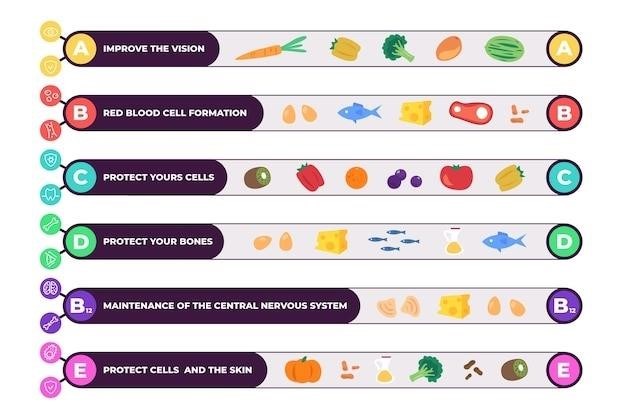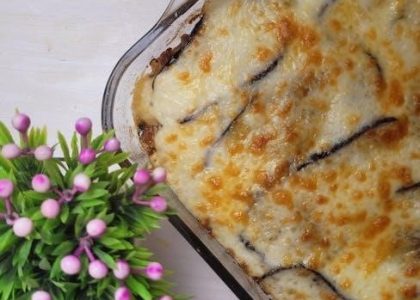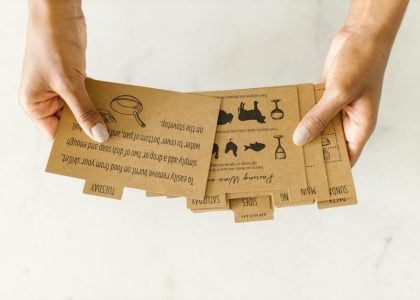Foodology⁚ A Comprehensive Guide
Embark on a culinary journey exploring digestive health and happiness. Discover mouthwatering recipes and insightful guides on Foodology Geek‚ ranging from comfort food to gourmet creations. Learn how food impacts well-being‚ connecting eating habits to personality and overall happiness.
Exploring Foodology Resources
Uncover a wealth of food-related resources through various online platforms. Foodology Geek offers a treasure trove of recipes‚ from simple comfort food to elegant gourmet dishes‚ catering to every occasion. Pinterest boards dedicated to Foodology showcase an array of culinary inspiration‚ including recipes‚ cooking techniques‚ and food photography. Amazon features “Foodology⁚ A Food-lover’s Guide to Digestive Health and Happiness‚” a book that delves into the science and joy of eating. Blogs like “Food-ology” provide personal culinary journeys and creative kitchen experiments. Websites such as Downshiftology offer healthy recipe collections‚ focusing on meal prep ideas and seasonal dishes. These diverse resources cater to various needs‚ whether you’re searching for specific recipes‚ exploring healthy eating‚ or seeking a deeper understanding of the connection between food and well-being. Each platform offers a unique perspective and valuable information to enhance your culinary exploration.
Recipe Collections and Types
Foodology encompasses a diverse range of recipe collections catering to various tastes and dietary needs. Explore countless options‚ from classic comfort food to innovative gourmet creations. Discover family-friendly recipes perfect for everyday meals‚ or delve into holiday-themed dishes for special occasions. Vegetarian and vegan options abound‚ alongside paleo recipes for those following specific dietary guidelines. Many resources offer meal prep plans‚ simplifying healthy eating for busy individuals. Specific recipe types include breakfast and brunch options‚ diverse dinner ideas‚ and delightful desserts. The variety ensures something for everyone‚ regardless of skill level or dietary preferences. Whether you’re a seasoned chef or a beginner cook‚ you’ll find inspiration and guidance within these extensive recipe collections. From simple pancakes to complex curries‚ the possibilities are endless‚ offering a world of culinary exploration.
Digestive Health and Food
Foodology emphasizes the crucial link between diet and digestive health. Understanding this connection is key to optimizing well-being. The provided text highlights the journey of food through the digestive system‚ from the initial sensory experience to its eventual elimination. This holistic approach considers the impact of various foods on gut health‚ emphasizing the importance of mindful eating. Resources like Foodology Geek offer recipes designed to support digestive health‚ often focusing on nutrient-rich ingredients known for their beneficial effects on the gut microbiome. Learn about the science behind digestion and how different foods influence the way you feel‚ both physically and mentally. Explore the role of gut health in overall well-being‚ discovering how nourishing your gut can positively impact your energy levels‚ mood‚ and immunity. This section provides a wealth of knowledge to empower you to make informed choices that promote a healthy and happy digestive system.

Foodology and Cooking Classes
Foodology offers recreational cooking classes for all skill levels. Enjoy hands-on learning experiences‚ creating delicious dishes while exploring diverse cuisines and dietary needs. Classes are designed to be fun and engaging‚ fostering a love for cooking and healthy eating.
Class Structures and Offerings
Foodology cooking classes cater to diverse interests and skill levels‚ offering a range of formats to suit individual preferences. Beginner-friendly classes focus on fundamental techniques and simple recipes‚ perfect for those new to cooking or seeking to enhance basic skills. Intermediate and advanced classes delve into more complex culinary arts‚ exploring specialized techniques and cuisines. Participants can expect structured lessons combining demonstrations with hands-on practice‚ ensuring a comprehensive learning experience. The curriculum often incorporates seasonal ingredients and cultural influences‚ providing a broad culinary education. Class sizes are typically kept small to ensure personalized attention and facilitate interaction between the instructor and students. Beyond standard cooking classes‚ Foodology might also offer specialized workshops focusing on specific cuisines‚ dietary restrictions‚ or baking techniques. These workshops provide in-depth exploration of a particular area within the culinary world. Furthermore‚ Foodology may organize themed cooking events‚ providing unique opportunities for participants to learn and enjoy cooking in a festive atmosphere.
Hands-on Learning Experiences
Foodology prioritizes hands-on learning‚ believing that active participation is key to mastering culinary skills. Classes often involve preparing dishes from start to finish‚ guiding students through each step of the process. Instructors provide demonstrations and guidance‚ but the emphasis is on students actively engaging with the ingredients and techniques. This immersive approach fosters a deeper understanding of cooking principles and builds confidence in the kitchen. Participants work individually or in small groups‚ collaborating and learning from each other. The hands-on aspect extends beyond basic preparation; classes might include tasks like making pasta from scratch‚ preparing sauces from raw ingredients‚ or mastering intricate cake decorating techniques. This active involvement enhances the learning experience‚ transforming passive observation into practical application. The focus on hands-on learning also creates a dynamic and engaging classroom environment. Students are encouraged to ask questions and receive immediate feedback‚ ensuring a personalized and effective learning journey. This interactive approach caters to diverse learning styles and encourages experimentation‚ building both culinary skills and confidence.
Dietary Considerations in Classes
Foodology’s cooking classes are designed to be inclusive and accommodating of various dietary needs and preferences. Before each class‚ participants are asked to specify any dietary restrictions or allergies‚ ensuring the menu can be adapted accordingly. Common dietary considerations‚ such as vegetarian‚ vegan‚ gluten-free‚ and dairy-free options‚ are readily addressed. The instructors work closely with students to create substitutions and modifications that maintain the integrity and flavor of the dishes while adhering to specific dietary requirements. Recipes are carefully reviewed to identify potential allergens and ensure suitable replacements are available. This proactive approach allows individuals with specific dietary needs to fully participate in the hands-on learning experience without compromising their health or preferences. Clear communication between students and instructors is vital‚ ensuring that all dietary concerns are addressed effectively. Foodology aims to create a welcoming and supportive environment where everyone can enjoy the culinary experience regardless of their dietary choices. The goal is to provide delicious and satisfying meals that cater to diverse needs‚ promoting a positive and inclusive learning atmosphere.

Foodology and Personal Well-being
Explore the fascinating connection between food‚ personality‚ and happiness. Discover how mindful eating habits contribute to improved well-being and a more fulfilling life.
Connecting Food Habits to Personality
Foodology delves into the intriguing relationship between our dietary choices and personality traits. Understanding this connection can offer valuable self-knowledge and insights into behavioral patterns. Do you gravitate towards comfort foods during stressful times‚ revealing a potential need for emotional regulation strategies? Or perhaps your adventurous palate reflects an open and curious personality‚ eager to explore new experiences. Analyzing your food preferences can unveil hidden aspects of your character‚ providing a unique lens through which to understand yourself better. This exploration encourages self-awareness‚ empowering you to make conscious choices that align with your personality and overall well-being. The insights gained can lead to more effective self-management and personal growth. Consider how your food choices reflect your values and priorities. Do you prioritize organic‚ locally sourced ingredients‚ reflecting a commitment to sustainability and ethical consumption? Or perhaps your quick and easy meal choices reveal a fast-paced lifestyle‚ prompting you to consider strategies for incorporating healthier habits into your daily routine. Foodology encourages a holistic approach to self-discovery‚ using food as a pathway to understanding your inner self.
The Role of Food in Happiness
Foodology explores the profound connection between food and happiness‚ revealing how culinary experiences can significantly impact our emotional well-being. The simple act of savoring a delicious meal can trigger the release of endorphins‚ creating feelings of pleasure and contentment. Childhood memories associated with particular foods often evoke strong emotions‚ highlighting the powerful role of food in shaping our personal narratives and sense of identity. From the comforting embrace of a familiar dish to the excitement of trying something new‚ food can be a powerful source of joy and connection. Sharing meals with loved ones fosters a sense of community and belonging‚ strengthening social bonds and creating lasting memories. Mindful eating practices‚ paying attention to the sensory details of taste‚ texture‚ and aroma‚ can enhance the enjoyment of food and promote a greater appreciation for the culinary arts. Foodology encourages a balanced approach‚ emphasizing the importance of nourishing both body and mind through mindful food choices and pleasurable culinary experiences. By understanding the intricate relationship between food and happiness‚ we can cultivate healthier eating habits that contribute to overall well-being and a greater sense of life satisfaction. Exploring diverse cuisines and experimenting with new recipes can expand our culinary horizons and introduce fresh sources of joy and inspiration. Ultimately‚ foodology teaches us that the pleasure derived from food is not merely a matter of taste but a fundamental element of a fulfilling and happy life.





